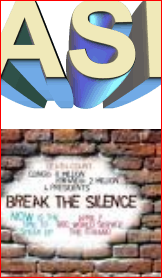A Candle For Remembering

May this memorial candle lights up the historical past of our beloved Country: Rwanda, We love U so much. If Tears could build a stairway. And memories were a lane. I would walk right up to heaven. To bring you home again. No farewell words were spoken. No time to say goodbye. You were gone before I knew it And. Only Paul Kagame knows why. My heart still aches with sadness. And secret tears still flow. What It meant to lose you. No one will ever know.
Rwanda: Cartographie des crimes
Rwanda: cartographie des crimes du livre "In Praise of Blood, the crimes of the RPF" de Judi Rever
Kagame devra être livré aux Rwandais pour répondre à ses crimes: la meilleure option de réconciliation nationale entre les Hutus et les Tutsis.
Let us remember Our People
Let us remember our people, it is our right
You can't stop thinking
Don't you know
Rwandans are talkin' 'bout a revolution
It sounds like a whisper
The majority Hutus and interior Tutsi are gonna rise up
And get their share
SurViVors are gonna rise up
And take what's theirs.
We're the survivors, yes: the Hutu survivors!
Yes, we're the survivors, like Daniel out of the lions' den
(Hutu survivors) Survivors, survivors!
Get up, stand up, stand up for your rights
et up, stand up, don't give up the fight
“I’m never gonna hold you like I did / Or say I love you to the kids / You’re never gonna see it in my eyes / It’s not gonna hurt me when you cry / I’m not gonna miss you.”
The situation is undeniably hurtful but we can'stop thinking we’re heartbroken over the loss of our beloved ones.
"You can't separate peace from freedom because no one can be at peace unless he has his freedom".
Malcolm X
Welcome to Home Truths
The year is 1994, the Fruitful year and the Start of a long epoch of the Rwandan RPF bloody dictatorship. Rwanda and DRC have become a unique arena and fertile ground for wars and lies. Tutsi RPF members deny Rights and Justice to the Hutu majority, to Interior Tutsis, to Congolese people, publicly claim the status of victim as the only SurViVors while millions of Hutu, interior Tutsi and Congolese people were butchered. Please make RPF criminals a Day One priority. Allow voices of the REAL victims to be heard.
Everybody Hurts
“Everybody Hurts” is one of the rare songs on this list that actually offers catharsis. It’s beautifully simple: you’re sad, but you’re not alone because “everybody hurts, everybody cries.” You’re human, in other words, and we all have our moments. So take R.E.M.’s advice, “take comfort in your friends,” blast this song, have yourself a good cry, and then move on. You’ll feel better, I promise.—Bonnie Stiernberg
KAGAME - GENOCIDAIRE
Paul Kagame admits ordering...
Paul Kagame admits ordering the 1994 assassination of President Juvenal Habyarimana of Rwanda.
Why did Kagame this to me?
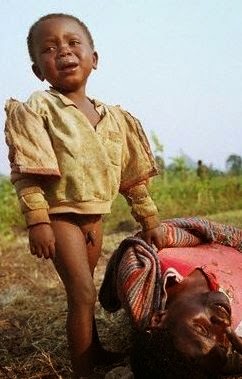
Can't forget. He murdered my mother. What should be my reaction? FYI: the number of orphans in Rwanda has skyrocketed since the 1990's Kagame's invasion. Much higher numbers of orphans had and have no other option but joining FDLR fighters who are identified as children that have Lost their Parents in Kagame's Wars inside and outside of Rwanda.If someone killed your child/spouse/parent(s) would you seek justice or revenge? Deep insight: What would you do to the person who snuffed the life of someone I love beyond reason? Forgiving would bring me no solace. If you take what really matters to me, I will show you what really matters. NITUTIRWANAHO TUZASHIRA. IGIHE KIRAGEZE.If democracy is to sell one's motherland(Africa), for some zionits support, then I prefer the person who is ready to give all his live for his motherland. Viva President Putin!!!
RPF committed the unspeakable
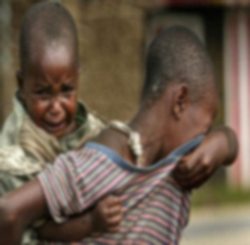
The perverted RPF committed the UNSPEAKABLE.Two orphans, both against the Nazi world. Point is the fact that their parents' murder Kagame & his RPF held no shock in the Western world. Up to now, the Rwandan Hitler Kagame and his death squads still enjoy impunity inside and outside of Rwanda. What goes through someone's mind as they know RPF murdered their parents? A delayed punishment is actually an encouragement to crime, In Praise of the ongoing Bloodshed in Rwanda. “I always think I am a pro-peace person but if someone harmed someone near and dear to me, I don't think I could be so peaceful. I would like to believe that to seek justice could save millions of people living the African Great Lakes Region - I would devote myself to bringing the 'perp' along to a non-happy ending but would that be enough? You'd have to be in the situation I suppose before you could actually know how you would feel or what you would do”. Jean-Christophe Nizeyimana, Libre Penseur
Inzira ndende
Search
Hutu Children & their Mums
Look at them ! How they are scared to death. Many Rwandan Hutu and Tutsi, Foreign human rights advocates, jounalists and and lawyers are now on Death Row Waiting to be murdered by Kagame and his RPF death squads. Be the last to know.
Rwanda-rebranding
Rwanda-rebranding-Targeting dissidents inside and abroad, despite war crimes and repression
Rwanda has “A well primed PR machine”, and that this has been key in “persuading the key members of the international community that it has an exemplary constitution emphasizing democracy, power-sharing, and human rights which it fully respects”. It concluded: “The truth is, however, the opposite. What you see is not what you get: A FAÇADE”
Rwanda has hired several PR firms to work on deflecting criticism, and rebranding the country.
Targeting dissidents abroad
One of the more worrying aspects of Racepoint’s objectives
was to “Educate and correct the ill informed and factually
incorrect information perpetuated by certain groups of expatriates
and NGOs,” including, presumably, the critiques
of the crackdown on dissent among political opponents
overseas.
This should be seen in the context of accusations
that Rwanda has plotted to kill dissidents abroad. A
recent investigation by the Globe and Mail claims, “Rwandan
exiles in both South Africa and Belgium – speaking in clandestine meetings in secure locations because of their fears of attack – gave detailed accounts of being recruited to assassinate critics of President Kagame….
Ways To Get Rid of Kagame
How to proceed for revolution in Rwanda:
- The people should overthrow the Rwandan dictator (often put in place by foreign agencies) and throw him, along with his henchmen and family, out of the country – e.g., the Shah of Iran, Marcos of Philippines.Compaore of Burkina Faso
- Rwandans organize a violent revolution and have the dictator killed – e.g., Ceaucescu in Romania.
- Foreign powers (till then maintaining the dictator) force the dictator to exile without armed intervention – e.g. Mátyás Rákosi of Hungary was exiled by the Soviets to Kirgizia in 1970 to “seek medical attention”.
- Foreign powers march in and remove the dictator (whom they either instated or helped earlier) – e.g. Saddam Hussein of Iraq or Manuel Noriega of Panama.
- The dictator kills himself in an act of desperation – e.g., Hitler in 1945.
- The dictator is assassinated by people near him – e.g., Julius Caesar of Rome in 44 AD was stabbed by 60-70 people (only one wound was fatal though).
- Organise strikes and unrest to paralyze the country and convince even the army not to support the dictaor – e.g., Jorge Ubico y Castañeda was ousted in Guatemala in 1944 and Guatemala became democratic, Recedntly in Burkina Faso with the dictator Blaise Compaoré.
Almighty God :Justice for US
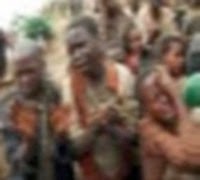
Hutu children's daily bread: Intimidation, Slavery, Sex abuses led by RPF criminals and Kagame, DMI: Every single day, there are more assassinations, imprisonment, brainwashing & disappearances. Do they have any chance to end this awful life?
Killing Hutus on daily basis

RPF targeted killings, very often in public areas. Killing Hutus on daily basis by Kagame's murderers and the RPF infamous death squads known as the "UNKNOWN WRONGDOERS"
RPF Trade Mark: Akandoya
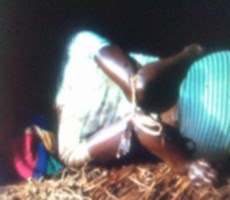
Rape, torture and assassination and unslaving of hutu women. Genderside: Rape has always been used by kagame's RPF as a Weapon of War, the killings of Hutu women with the help of Local Defense Forces, DMI and the RPF military
The Torture in Rwanda flourishes
Fighting For Our Freedom?
We need Freedom, Liberation of our fatherland, Human rights respect, Mutual respect between the Hutu majority and the Tutsi minority
KAGAME VS JUSTICE
Showing posts with label RPF Impunity. Show all posts
Showing posts with label RPF Impunity. Show all posts
Friday, May 27, 2011

Don't let idiots rule a country when you could do it a lot better!
[Since 1994, the world witnesses the horrifying reality : the Tutsi minority (14%) ethnic domination, the Tutsi minority ethnic rule, tyranny and corruption in Rwanda
So long as justice and accountability for RPF past and current crimes are ignored and delayed, Peace and Stability will remain illusive and impossible in Rwanda=>ASIF]
IT IS TIME TO CHOOSE between betraying the country and supporting the Rwandan dictator !
As President Kagame scrambles to re-invent his tarnished image as the ruler who kills innocent Rwandans at home and abroad, a war criminal, corrupt leader and absolute dictator, he is desperately turning to members of the so-called Presidential Advisory Council for help. The million dollar question is: will the foreigners among them remain on board Kagame's sinking ship? Are they innocently, blindly ( or naively) backing Kagame without knowledge of his criminal activities in Rwanda and abroad? What kind of advice do they give a ruler who refuses to account for his crimes, and is surely taking the country to civil war and more bloodshed? Can they now instead champion the interests of the vast majority of the Rwandan people, instead of befriending a corrupt and blood-stained dictator? The choice is theirs.
Here are the members of the Presidential Advisory Council (PAC):
- Louise Mushikiwabo (Rwanda) – Minister of Foreign Affairs
- James Musoni (Rwanda) – Minister of Local Government
- John Rwangombwa (Rwanda) – Minister of Finance
- Francois Kanimba (Rwanda) – Minister of Commerce
- James Kimonyo (Rwanda) – Ambassador to the United States
- Emmanuel Ndahiro (Rwanda) – Kagame's Chief of Intelligence
- Francis Gatare (Rwanda) – Principal Private Secretary to President Kagame
- Christian Angermayer (Germany) – Investment banker and investor
- Tony Blair (UK) – Former UK Prime Minister
- Paul Davenport (Canadian) – President, University of Western Ontario
- Dale Dawson (USA) – Founder & CEO of Bridge2Rwanda
- Michael Fairbanks (USA) – Founder of OTF Group and SEVEN Fund
- Scott Ford (USA) – Founder & CEO of Westrock Partners and Rwanda Trading Company
- Tom Hunter (UK) – Scottish businessman and philanthropist
- Donald Kaberuka (Rwanda) – President of African Development Bank
- Sir David King (UK) – Director of Smith School at Oxford
- Kaia Miller (USA) – Founder of Aslan Global
- Clet Niyikiza (USA/Rwanda) – Senior VP-Development of Merrimack Pharmaceuticals
- Michael Porter (USA) – Professor at Harvard Business School, author on competitive
strategy - Michael Roux (Australia) – Chair of Roux International, former Vice-Chairman of
Citigroup - John Rucyahana (Rwanda) – Retired Anglican Bishop, President of National Unity and Reconciliation Commission
- Doug Shears (Australia) – Executive Chairman of ICM Australia
- Eliane Ubalijoro (Canada/Rwanda) – Professor at McGill University, Developing area studies
- Rick Warren (USA) – Pastor at Saddleback Church/PEACE Plan, author of Purpose Driven Life
ASI centers its work on the twin concepts of freedom of self-determination and freedom from tyranny. These ideals include the belief that all human beings have the rights to speak freely, to associate with those of like mind, and to leave and enter their countries. Individuals in a free society must be accorded equal treatment and due process under law, and must have the opportunity to participate in the governments of their countries;
ASI’s ideals likewise find expression in the conviction that all human beings have the right to be free from arbitrary detainment or exile and from interference and coercion in matters of conscience. ASI does not support nor condone violence.
The Truth can be buried and stomped into the ground where none can see, yet eventually it will, like a seed, break through the surface once again far more potent than ever, and Nothing can stop it. Truth can be suppressed for a "time", yet It cannot be destroyed. ==> Wolverine
Tuesday, May 24, 2011
| Victoire heeft uw steun nodig Ze verdient onze steun Geachte landgenoot, Het proces vindt plaats in een maand. Ze zal worden geholpen door drie advocaten;twee Brits en een Rwandese. Geef uw bijdrage aan deze kosten. Dank u ======================================== Victoire a besoin de ton aide Elle mérite notre soutien Ne l’abandonnons pas Cher compatriote, Le procès aura lieu dans un mois Elle sera assistée par trois avocats :deux Britanniques et un rwandais SVP donnes ta contribution aux frais . Merci Victoire akeneye inkunga yawe . Victoire akwiye inkunga yacu. Ntitumutererane Mu rubanza rwe azunganirwa na ba avoka batatu :abongereza babili n’umunyarwanda Tanga inkunga yawe.Tubaye tugushimiye . Urakoze. ======================================== Victoire needs your support - She deserves our support Dear compatriot, The trial will take place in a month. She will be assisted by three lawyers: two British and one Rwandan. Please give your contribution to these costs. Thank you Rekeningnummer (compte nr, bank account) : 114031347 | <><><><><>
The Truth can be buried and stomped into the ground where none can see, yet eventually it will, like a seed, break through the surface once again far more potent than ever, and Nothing can stop it. Truth can be suppressed for a "time", yet It cannot be destroyed. ==> Wolverine
Friday, May 6, 2011
Kigali 06 May 2011
According to various reports, Ms. Ingabire Victoire is punished for her fight.
The Rwandan vile and nauseating hypocrisy.
Wednesday, April 27, 2011

[Since 1994, the world witnesses the horrifying reality: the Tutsi minority (14%) ethnic domination, the Tutsi minority ethnic rule, tyranny and corruption in Rwanda
Why the evil Rwandan dictator attempts to dismiss the importance of
The U.N. Security Council Resolution 955??
The U.N. Security Council Resolution 955??
***
General Kagame seeking rehabilitation by all means
***

| ||
African SurViVors International (ASI) is an international nonpartisan charity organization devoted to defending human rights. It’s an organization working to promote democracy and national reconciliation, inside countries of the African Great lakes Region.
ASI centers its work on the twin concepts of freedom of self-determination and freedom from tyranny. These ideals include the belief that all human beings have the rights to speak freely, to associate with those of like mind, and to leave and enter their countries. Individuals in a free society must be accorded equal treatment and due process under law, and must have the opportunity to participate in the governments of their countries;
ASI’s ideals likewise find expression in the conviction that all human beings have the right to be free from arbitrary detainment or exile and from interference and coercion in matters of conscience. ASI does not support nor condone violence.
The Truth can be buried and stomped into the ground where none can see, yet eventually it will, like a seed, break through the surface once again far more potent than ever, and Nothing can stop it. Truth can be suppressed for a "time", yet It cannot be destroyed. ==> Wolverine
Monday, March 21, 2011

The Killing of Rwandan Hutu refugees
in J'accuse
7th Edition
[Since 1994, the world witnesses the horrifying reality : the Tutsi minority (14%) ethnic domination, the Tutsi minority ethnic rule, tyranny and corruption in Rwanda. The current government has been characterized by the total impunity of RPF criminals, the Tutsi economic monopoly, the Tutsi militaristic domination with an iron hand, and the brutal suppression of the rights of the majority of the Rwandan people (85% are Hutus), mass-arrests and mass-murder by the RPF criminal organization.
So long as justice and accountability for RPF past and current crimes are ignored and delayed, Peace and Stability will remain illusive and impossible in Rwanda=>ASIF]
In October 1996 Paul Kagame decided to continue the Hutu hunt down across the border into Congo. This killing mission was not limited to Rwandan Hutu citizens only, but included Congolese of Hutu ethnic background.
 |
| Léon Kengo wa Dondo Chairman of the DRC Senate |
The Killing of Rwandan Hutu refugees
It is impossible to determine the exact number of Rwandan refugees killed in Congo. To get a sense of what happened, here are selected excerpts from the UN report.:
“On 1 March 1997, AFDL/APR units killed 11 Rwandan Hutu refugees belonging to religious orders on the Kindu road, around twenty kilometres from Kalima, in the Pangi territory. The victims, eight priests and three nuns, had been refugees in South Kivu since 1994. … the soldiers beat them to death with sticks. The bodies of the victims were buried at the scene” (paragraph 238).“Around eight o’clock in the evening on 14 March 1997, after the defeat of the FAZ/ex-FAR/Interahamwe coalition, AFDL/APR soldiers allegedly killed at least 470 refugees in the two camps near Wanie Rukula, in the Ubundu territory. Most of the victims’ bodies were dumped in the Luboya River but some were placed in three mass graves” (paragraph 242).
“It was impossible to determine the number of refugees killed by AFDL/APR soldiers in the attacks on the camps along the Goma to Rutshuru road…. From 2 November to 30 November 1996, the people of Kibumba buried 2,087 bodies. Between 30 November 1996 and 26 January 1997, EUB - Équipe d’urgence de la biodiversité- buried 1,919 bodies in and around the Kibumba camp”.
Targeting Congolese Hutu
If Rwandan Hutus were hunted down by the new Rwandan government forces, why were Congolese Hutu selectively targeted? Here is one of the reasons found in the UN report. “Many witnesses have claimed to have spotted a large number of Tutsi Banyarwanda youths who had left Rutshuru territory between 1990 and 1996 among the AFDL/APR soldiers. According to several witnesses, the AFDL/APR soldiers displayed a clear desire for revenge in their massacres of the Hutu Banyarwanda, targeting villages where Tutsis had been persecuted in the past.”. “The term ‘Banyarwanda’, literally “people from Rwanda”, is used to designate both Hutu and Tutsi populations originating from Rwanda and living in North Kivu. Some are the descendants of peoples of Rwandan origin who settled on the Congolese territory before 1885 and whose Zairian nationality has never been seriously contested. Most Banyarwanda, however, arrived in Congo/Zaire during the colonial era or after the country’s independence” . This footnote explains also in part the killing of Congolese other than Hutu particularly in south Kivu. You are encouraged to read the report here
The Complicity in Crime
A lot has been written about the United States and the United Kingdom connections to the war in Congo through their unconditional support of the Rwanda government. Although some analysts say that their support is out of guilt for not having done enough to top stop the Rwandan genocide, there is more to the story. The French, US and UK competitions for political and economic interests in the region are a big part of the Congo tragedy.
The question at hand is how to expose, oppose and eradicate neocolonialism. We must demand justice for past and present crimes starting by the crimes that continue to take place in Congo. If the US and the UK sign off on the creation of a court to try Kagame and his allies for their crimes in Congo as the UN Report suggests, who else may be exposed in the proceedings?
ENDS
The Truth can be buried and stomped into the ground where none can see, yet eventually it will, like a seed, break through the surface once again far more potent than ever, and Nothing can stop it. Truth can be suppressed for a "time", yet It cannot be destroyed. ==> Wolverine
Saturday, January 8, 2011
Panelists include the Rwandan Ambassador to the US, James Kimonyo, as well as two prominent Rwanda human rights activists, Aloys Habimana and Noel Twagiramungu.
The Ambassador spoke aggressively, and did not leave much space for either Aloys or Noel to speak, probably because he knew that he would not agree with what they would have to say. Instead, I had to bring Kimonyo to heel twice as he spoke beyond his allotted time, accusing some of us on the panel of denying the 1994 genocide within his barrage that Rwanda will have another genocide if we (meaning foreigners, I think) continue to deny the genocide. For my part, because Kimonyo mentioned what he sees as my views to the audience, I spoke briefly to say that my position is, has been and always will be a desire to stop the killing by all sides, and to bring justice to the Great Lakes Region. Having similarly denounced Aloys and Noel as individuals whose work also tries to deny the genocide, one of them made the best comment of the panel, asking if the government of Rwanda itself was not denying genocide (by its own definition) in denouncing the UN Mapping Report of 1 October 2010.
Most interesting was the Ambassador's lack of knowledge about the opinions of his fellow panelists. He accused me and Aloys of being genocide deniers (his understanding of my views is from my blog, not my opinion pieces or academic writing; I am not sure where he gets his information on Aloys' ideas). His failure of logic is that you cannot deny what you cannot talk about. No thinking person denies that there was genocide in Rwanda in 1994 - what some of us argue is that the genocide occurred in a broader context of civil war in which Rwandans of all ethnicities were caught up in the violence. It is a shame that the current government of Rwanda cannot understand that. It is the lack of understanding, combined with intra-RPF conflict that will push Rwanda to another round of violence....
© Democracy Watch
The Truth can be buried and stomped into the ground where none can see, yet eventually it will, like a seed, break through the surface once again far more potent than ever, and Nothing can stop it. Truth can be suppressed for a "time", yet It cannot be destroyed. ==> Wolverine
Saturday, December 18, 2010
[Since 1994, the world witnesses the horrifying reality : the Tutsi minority (14%) ethnic domination, the Tutsi minority ethnic rule, tyranny and corruption in Rwanda. The current government has been characterized by the total impunity of RPF criminals, the Tutsi economic monopoly, the Tutsi militaristic domination with an iron hand, and the brutal suppression of the rights of the majority of the Rwandan people (85% are Hutus), mass-arrests and mass-murder by the RPF criminal organization.
So long as justice and accountability for RPF past and current crimes are ignored and delayed, Peace and Stability will remain illusive and impossible in Rwanda=>ASIF]
 | |
| Christian Davemport Porfessor of Peace Studies, political science, and sociology KROC |
The Truth can be buried and stomped into the ground where none can see, yet eventually it will, like a seed, break through the surface once again far more potent than ever, and Nothing can stop it. Truth can be suppressed for a "time", yet It cannot be destroyed. ==> Wolverine
Christian Davenport's "Rethinking Rwanda, 1994" at the Kroc Institute - University of Notre Dame (April 8, 2010).
Sixteen years ago, the world watched as Rwanda descended into large-scale violence that left up to a million people dead. This was followed by massive out-migration (nearly half the country), untold amounts of internal displacement, and a deluge of articles, TV news features, movies, and commentary from human rights activists, political leaders, and ordinary people from around the world. Christian Davenport - Rethinking Rwanda, 1994 from JamboNewsTV on Vimeo.
Sixteen years ago, the world watched as Rwanda descended into large-scale violence that left up to a million people dead. This was followed by massive out-migration (nearly half the country), untold amounts of internal displacement, and a deluge of articles, TV news features, movies, and commentary from human rights activists, political leaders, and ordinary people from around the world.
Génocide rwandais : renversement de perspective
Geüpload door realpolitiktv. - De allerlaatste nieuwscontent.
Exactly what happened during Rwanda’s hundred days of horror? Christian Davenport has spent more than a decade researching this question. His answer takes all the elements of what has become the conventional story — civil war, genocide, ethnic conflict, refugees, French UN missions, Tutsi rebels, the Hutu army — and combines them in unexpected ways. His research turns on its head the way we understand Rwanda, political violence, intervention, and the study of conflict itself.
Christian Davenport is a scholar of political conflict, from genocide to domestic spying. He directs two research and action projects: the Radical Information Project and Stop Our States. He is the author or editor of four books: State Repression and the Domestic Democratic Peace, Media Bias, Perspective and State Repression, Repression and Mobilization, and Paths to State Repression.
Free and open to the public.
A light lunch will be available before the lecture.
Related articles:
The Truth can be buried and stomped into the ground where none can see, yet eventually it will, like a seed, break through the surface once again far more potent than ever, and Nothing can stop it. Truth can be suppressed for a "time", yet It cannot be destroyed. ==> Wolverine
Thursday, December 16, 2010

Dat zei minister Uri Rosenthal van Buitenlandse Zaken aan het eind van het debat over zijn begroting voor 2011, dat woensdag begon en tot in de nacht uitliep. Als de rechtbank in Rotterdam bepaalt dat de stukken aan Rwanda kunnen worden overhandigd, gaan ze eerst naar staatssecretaris Fred Teeven van Justitie. Die zal voordat hij een besluit neemt over de doorgeleiding, eerst advies inwinnen bij Rosenthal, meldde de minister.
De minister had de gang van zaken op verzoek van de Tweede Kamer nog tijdens het overleg nagevraagd bij Teeven. Met name de ChristenUnie en D66 drongen daar op aan.
De spullen zijn begin deze week in beslag genomen tijdens een huiszoeking van de nationale recherche in de woning van Ingabire, die in Zevenhuizen woont. Zij zelf is gevangen genomen in Rwanda nadat ze in januari was teruggekeerd om mee te doen met de verkiezingen. De huiszoeking gebeurde op verzoek van het regime in Rwanda.
Bron
The Truth can be buried and stomped into the ground where none can see, yet eventually it will, like a seed, break through the surface once again far more potent than ever, and Nothing can stop it. Truth can be suppressed for a "time", yet It cannot be destroyed. ==> Wolverine
Subscribe to:
Posts
(Atom)
AS International
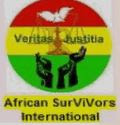
SurViVors SPEAK OUT - Rights of Victims Seeking Justice and Compensation for the RPF Genocide. This is an Exciting Collaborative Project launched by The AS International Founder Jean-Christophe Nizeyimana, Economist and Human Rights Activist. Join US and Be the First to know about the Mastermind of the Rwandan Genocide Still At large and enjoing Impunity.
Profile
I am Jean-Christophe Nizeyimana, an Economist, Content Manager, and EDI Expert, driven by a passion for human rights activism. With a deep commitment to advancing human rights in Africa, particularly in the Great Lakes region, I established this blog following firsthand experiences with human rights violations in Rwanda and in the DRC (formerly Zaïre) as well. My journey began with collaborations with Amnesty International in Utrecht, the Netherlands, and with human rights organizations including Human Rights Watch and a conference in Helsinki, Finland, where I was a panelist with other activists from various countries.
My mission is to uncover the untold truth about the ongoing genocide in Rwanda and the DRC. As a dedicated voice for the voiceless, I strive to raise awareness about the tragic consequences of these events and work tirelessly to bring an end to the Rwandan Patriotic Front (RPF)'s impunity.
This blog is a platform for Truth and Justice, not a space for hate. I am vigilant against hate speech or ignorant comments, moderating all discussions to ensure a respectful and informed dialogue at African Survivors International Blog.
Genocide masterminded by RPF
Finally the well-known Truth Comes Out.
After suffering THE LONG years, telling the world that Kagame and his RPF criminal organization masterminded the Rwandan genocide that they later recalled Genocide against Tutsis. Our lives were nothing but suffering these last 32 years beginning from October 1st, 1990 onwards. We are calling the United States of America, United Kingdom, Japan, and Great Britain in particular, France, Belgium, Netherlands and Germany to return to hidden classified archives and support Honorable Tito Rutaremara's recent statement about What really happened in Rwanda before, during and after 1994 across the country and how methodically the Rwandan Genocide has been masterminded by Paul Kagame, the Rwandan Hitler. Above all, Mr. Tito Rutaremara, one of the RPF leaders has given details about RPF infiltration methods in Habyarimana's all instances, how assassinations, disappearances, mass-slaughters across Rwanda have been carried out from the local autority to the government,fabricated lies that have been used by Gacaca courts as weapon, the ICTR in which RPF had infiltrators like Joseph Ngarambe, an International court biased judgments & condemnations targeting Hutu ethnic members in contraversal strategy compared to the ICTR establishment to pursue in justice those accountable for crimes between 1993 to 2003 and Mapping Report ignored and classified to protect the Rwandan Nazis under the RPF embrella . NOTHING LASTS FOREVER.
Human and Civil Rights
Human Rights, Mutual Respect and Dignity
For all Rwandans :
Hutus - Tutsis - Twas
Rwanda: A mapping of crimes
Rwanda: A mapping of crimes in the book "In Praise of Blood, the crimes of the RPF by Judi Rever
Be the last to know: This video talks about unspeakable Kagame's crimes committed against Hutu, before, during and after the genocide against Tutsi in Rwanda.
The mastermind of both genocide is still at large: Paul Kagame
KIBEHO: Rwandan Auschwitz
Kibeho Concetration Camp.
Mass murderers C. Sankara
Stephen Sackur’s Hard Talk.
Prof. Allan C. Stam
The Unstoppable Truth
Prof. Christian Davenport
The Unstoppable Truth
Prof. Christian Davenport Michigan University & Faculty Associate at the Center for Political Studies
The killing Fields - Part 1
The Unstoppable Truth
The killing Fields - Part II
The Unstoppable Truth
Daily bread for Rwandans
The Unstoppable Truth
The killing Fields - Part III
The Unstoppable Truth
Time has come: Regime change
Drame rwandais- justice impartiale
Carla Del Ponte, Ancien Procureur au TPIR:"Le drame rwandais mérite une justice impartiale" - et réponse de Gerald Gahima
Sheltering 2,5 million refugees
Credible reports camps sheltering 2,500 million refugees in eastern Democratic Republic of Congo have been destroyed.
The UN refugee agency says it has credible reports camps sheltering 2,5 milion refugees in eastern Democratic Republic of Congo have been destroyed.
Latest videos
Peter Erlinder comments on the BBC documentary "Rwanda's Untold Story
Madam Victoire Ingabire,THE RWANDAN AUNG SAN SUU KYI
Rwanda's Untold Story
Rwanda, un génocide en questions
Bernard Lugan présente "Rwanda, un génocide en... par BernardLugan Bernard Lugan présente "Rwanda, un génocide en questions"
Nombre de Visiteurs
Pages
Popular Posts - Last 7 days
-
[Since 1994, the world witnesses the horrifying Tutsi minority (14%) ethnic domination, the Tutsi minority ethnic rule with an iron hand,...
-
[Since 1994, the world witnesses the horrifying Tutsi minority (14%) ethnic domination, the Tutsi minority ethnic rule with an iron hand,...
-
Professor and Constitutional Criminal Lawyer Peter Erlinder is interviewed by host Karen Redleaf. Watch this video to understand: http://ou...
-
This is not an ASI publication. ASI is not responsible for, nor does it endorse, its content. Any views expressed are solely those of the...
-
Les survivants du génocide rwandais INSISTENT sur l'embargo contre le régime nazi du FPR Le Control Arms, qui a révélé ces Affaires, ...
-
Kananga foot shufflers, April 19, 2003 Kinshasa, May 4, 2003 » Kigali, Rwanda, April 22, 2003 “How many lives in danger are necessary for a...
-
<===Mon oeil! *** Once uncovered, the Impostor will always flee, but he may return in another form, believe me! *** Depuis quelques jou...
-
[Since 1994, the world witnesses the horrifying Tutsi minority (14%) ethnic domination, the Tutsi minority ethnic rule with an iron hand...
-
[Since 1994, the world witnesses the horrifying Tutsi minority (14%) ethnic domination, the Tutsi minority ethnic rule with an iron hand...
-
[Since 1994, the world witnesses the horrifying Tutsi minority (14%) ethnic domination, the Tutsi minority ethnic rule with an iron hand,...
Archives
Everything happens for a reason
Bad things are going to happen in your life, people will hurt you, disrespect you, play with your feelings.. But you shouldn't use that as an excuse to fail to go on and to hurt the whole world. You will end up hurting yourself and wasting your precious time. Don't always think of revenging, just let things go and move on with your life. Remember everything happens for a reason and when one door closes, the other opens for you with new blessings and love.
Hutus didn't plan Tutsi Genocide
Kagame, the mastermind of Rwandan Genocide (Hutu & tutsi)


